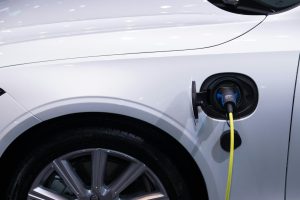EV Range Anxiety 2025: Myth or Persistent Reality?
In the past few years, electric vehicles (EVs) have become increasingly popular among consumers due to their potential to reduce carbon emissions and lower fuel costs. However, one of the main concerns that still exists among potential EV buyers is range anxiety – the fear of running out of battery power before reaching their destination. This has been a persistent issue for EVs since their introduction, but many automakers are claiming that by 2025, this fear will become a thing of the past. But is this statement true? Will EV range anxiety still be a myth or will it continue to be a persistent reality in 2025? Let’s take a closer look at the current state of EV range and what the future holds for this technology.
The Current State of EV Range Anxiety
One of the major reasons for the rise of EVs is the development of advanced battery technology. Modern batteries are more efficient, have a longer lifespan, and can hold a larger amount of energy compared to their predecessors. However, even with these advancements, range anxiety is still a major concern for EV owners. The whole concept of range anxiety revolves around the fact that EVs cannot travel as far as traditional internal combustion engine vehicles on a single charge.
According to a study conducted by AAA in 2020, the average range of a fully charged EV in the United States is between 100-300 miles. This range may seem sufficient for daily commutes, but it becomes a problem when planning long-distance trips. EV owners are not only limited by the range of their vehicle but also by the availability of charging stations along their route. This often leads to drivers being overly cautious and planning their trips around charging stations, which can be time-consuming and inconvenient.
The Future of EV Range
Automakers and technology companies are continuously working to improve the range of EVs, and it’s expected that advancements in battery technology will lead to longer ranges by 2025. Some automakers have already announced plans to release EVs with ranges higher than 500 miles by then. Furthermore, the development of fast-charging stations can ease the concerns of range anxiety by providing a quick and easy way to top up the battery on long trips.
Another factor that could potentially eliminate range anxiety is the development of solid-state batteries. These batteries have higher energy densities and can potentially provide double or triple the range of current lithium-ion batteries. However, solid-state batteries are still in the development phase, and it may take a few more years before they become commercially available.
The Role of Government Policies
Government policies and initiatives play a crucial role in the adoption of EVs and the improvement of their technology. Many countries have announced plans to phase out the sale of internal combustion engine vehicles and promote the use of clean energy vehicles. This has pushed automakers to invest more in EV technology, including range improvements. Furthermore, government subsidies and incentives for purchasing EVs can also encourage more people to make the switch, ultimately leading to more research and development in the area of battery technology.
The Verdict: Myth or Persistent Reality?
Despite the advancements in EV technology, it’s safe to say that range anxiety will still be a reality in 2025, but to a lesser extent than today. While EV ranges are expected to improve and charging infrastructure to expand, it’s still unrealistic to expect EVs to travel as far as traditional vehicles on a single charge. The solution to range anxiety may not lie entirely in improving batteries and charging stations, but also in changing the mindset of consumers and promoting the use of EVs for shorter, daily trips rather than long-distance journeys.
In conclusion, EV range anxiety may not entirely disappear but will definitely become less of a concern as technology and infrastructure continue to improve. The key to addressing range anxiety lies in the combined efforts of automakers, technology companies, and governments to create a sustainable and well-connected EV ecosystem, making clean energy vehicles a viable option for everyone.











